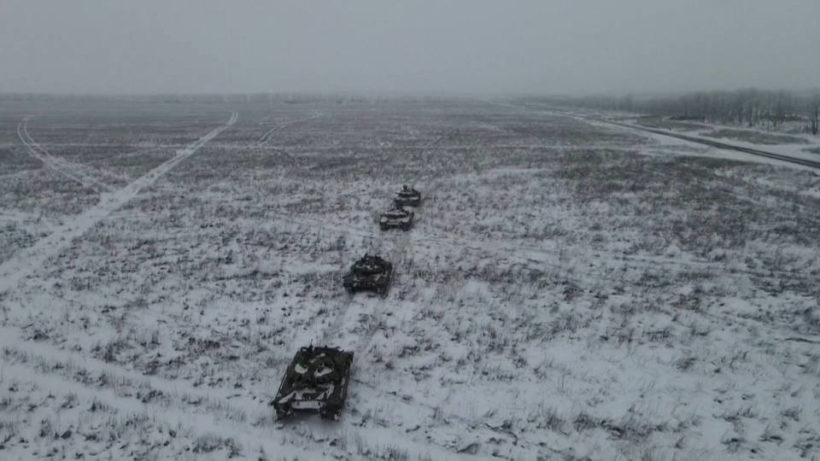29 January 2022 (openDemocracy)* — As the Ukraine crisis evolves, the military machinery on both sides gears up for combat, with Russia moving troops and equipment towards Ukraine and NATO sending reinforcements to Eastern Europe.
Each side persists with its propaganda, and it is not easy to get a full picture of what is really going on.
While Russia has been leading the way in troop and equipment movements, Western sources are prone to more than a little exaggeration. We are persistently told that Russia has 100,000 troops massed on the border, but detail is lacking. It’s not clear what Russia’s routine basing is in that strategically important area – are there usually 10,000,20,000 or as many as 30,000 troops based there anyway?
Some of the public sources indicate that many of the troops are at least 200km from Ukraine, but 100,000 massed on the border ready to strike sounds better.
To complicate matters, one of the most senior British politicians, the foreign secretary Liz Truss, announced on the radio on 26 January that there are “hundreds of thousands” of Russian troops ready to go. Was that a slip of the tongue or has the threat doubled overnight?
Meanwhile, the US already has Special Forces training soldiers in Ukraine and has 8,500 troops on alert, Denmark is sending fighter jets to Lithuania and a frigate to the Baltic, France has offered troops to Romania and Spain is sending a warship to the Black Sea.
Britain’s contribution so far is to send anti-tank weapons to Ukraine, along with soldiers to train Ukraine Army personnel in their use, and to deploy more troops to Estonia, where it already leads a battle group.
Some 2,000 of those British weapons – known as MBT-NLAWs, or Main Battle Tank Next-generation Light Anti-tank Weapons – have currently been shipped at a so-far undisclosed cost. Developed as a joint Swedish-British project, the MBT-NLAWs are manufactured by Saab, and are shoulder-launched for use against tanks at a short range of up to 200 metres, making them something of a last-ditch system.
Paul Rogers is Emeritus Professor of Peace Studies in the Department of Peace Studies and International Relations at Bradford University, northern England and an Honorary Fellow at the Joint Service Command and Staff College.
He is openDemocracy’s international security adviser and has been writing a weekly column on global security since 28 September 2001; he also writes regularly for Rethinking Security. His latest book is the fourth edition of ‘Losing Control: Global Security in the 21st Century’ (London: Pluto Press, 2021). He is on Twitter at: @ProfPRogers.










